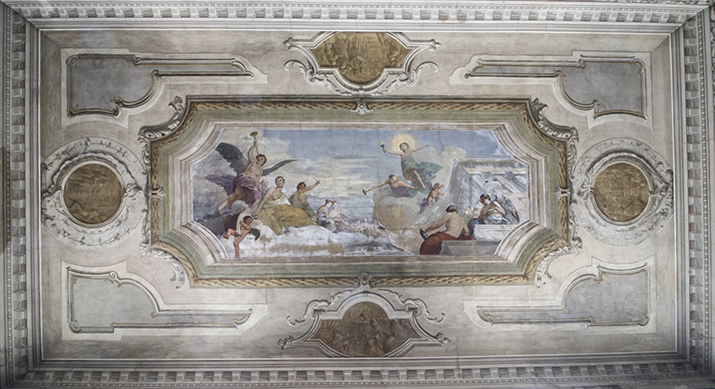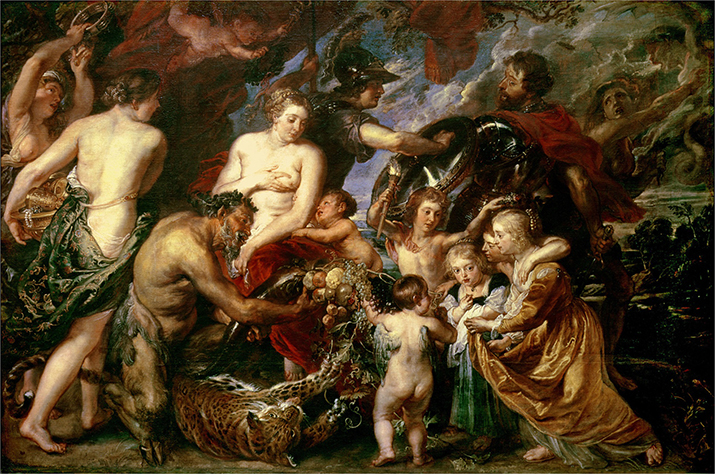HAPPENING AT THE UN
WORLD SCIENCE DAY FOR PEACE AND DEVELOPMENT
To win a Nobel Prize it is not enough to be intelligent, you also need to have a vision, to think on a universal scale and long-term. Giorgio Parisi, who last month received the phone call that all scholars dream of from the Stockholm Academy of Sciences, has dedicated his life to putting order in the chaos and he did it in physics, where he made "innovative contributions to our understanding of complex systems". Joining him are two other winners, the Japanese meteorologist and climatologist, Syukuro Manabe, 90, and the German oceanographer and climate modeler, Klaus Hasselmann, 89, who received the Nobel Prize "for physical modeling of the earth's climate, the quantification of variability and the reliable forecast of global warming ». All three work on phenomena that are certainly chaotic, but only seem random. It is about finding order and when you manage to find it then oftentimes it works in areas you hadn't thought of, such as mathematics, biology, neuroscience or machine learning.
Science has produced penicillin, but also the atomic bomb, photovoltaic panels and genetically modified crops. In essence, it is a tool at the service of humanity and we must then make use of it as seems fit, preferably using it for the common good. It has always been like this but what has changed in the last century is the trust we place in this means at our disposal. Parisi himself, between one toast and another, released a series of interviews as soon as he received news of the Nobel, in which he stressed that in this period "we doubt that our conditions will improve and, consciously or not, we blame science ". In short, «it is true that our situation is critical on many fronts, but to get out of it we need more science, not less science. And this is particularly true of climate change ». Perhaps then the World Science Day for Peace and Development, established by the United Nations, takes on a whole new meaning, of significant relevance in the present climate, which is as it should be but unfortunately is not always so. The celebrations are set for November 10 and the aim is to emphasize how knowledge and technological development can be fundamental for the economy and the environment and an improvement in these areas drastically decreases the likelihood of conflicts occurring. After all, scientists, in one way or another, have always placed the ethical dilemma at the center of their actions. Sometimes by repressing it and moving "to the dark side", at other times by giving up huge gains so as to provide everyone with access to various newly discovered treatments. The examples that could be given are numerous, but on the subject of Nobel prizes we may bear in mind Mr. Alfred Nobel himself, who after having invented the most powerful explosive ever known until his time, in order "to make amends and relieve his conscience as a man instituted the prizes for the promotion and realization of Peace ».
Knowledge and technological development are essential for the economy and the protection of the environment. An improvement in these areas decreases conflicts
This was written by someone else who knew something about science, Albert Einstein, emphasizing, with regard to the atomic bomb, that "the physicists who helped forge the most formidable and dangerous weapon of all time are tormented by a shared sense of responsibility, not to say guilt ». "We must continue to admonish governments - he continued - and to make them aware of the unspeakable disaster they will most certainly cause if they cannot manage to change their attitude in time".
Bertrand Russell, who could not win the Nobel Prize because he was a mathematician, emphasized in an interview with the BBC in 1959 how the relationships of solidarity, compassion and empathy must be amplified in order to allow for the continuation of life on an increasingly crowded planet. "Love is wise, hate is insane. In this world that is becoming more and more interconnected, we have to learn to tolerate others, to accept the fact that someone may say things we don't like. Only in this way can we live together. If we wish to live together rather than die together, we must learn some form of charity and tolerance, which are absolutely vital for the continuation of human life on Earth”. He did not know social networks, but it seems he had anticipated their implication.
According to the recent Nobel Prize winner in Physics Giorgio Parisi at this moment "we doubt that our conditions will improve and, consciously or not, we blame science"
Together Einstein and Russell promoted the Manifesto for Peace in 1955 calling for nuclear disarmament. They did not get it because stronger than their ideas were and still are the economic interests that gravitate around the continuous feeding of wars. "No statesman who has ever held a position of responsibility has dared to take the only promising route for stable peace, that of supranational security, since this would certainly have ended his political career. In fact, the political passions, which are kindled everywhere, require victims,” Einstein commented. This is why, alongside the word science, the UN has put "for Peace and Development" as its World Day. Things must go hand in hand, and there is only one way to do so. Józef Rotblat, another one of the editors of the Manifesto, taught us this as the only scientist involved in the Manhattan project to abandon his job due to moral conflicts. He also received a Nobel Prize in 1995, that of Peace. He took to the stage, accepted his medal and personal diploma, collected a large sum of money and uttered a phrase that applies to everyone in every age, scientists or otherwise: "Remember your humanity, and forget the rest."

«Allegory of Science» (1894-1895, Complesso Cavalli, Padua), attributed to Giacomo Manzoni

Peter Paul Rubens, "Minerva Protecting Peace from Mars" (1629-1630, National Gallery of London)






